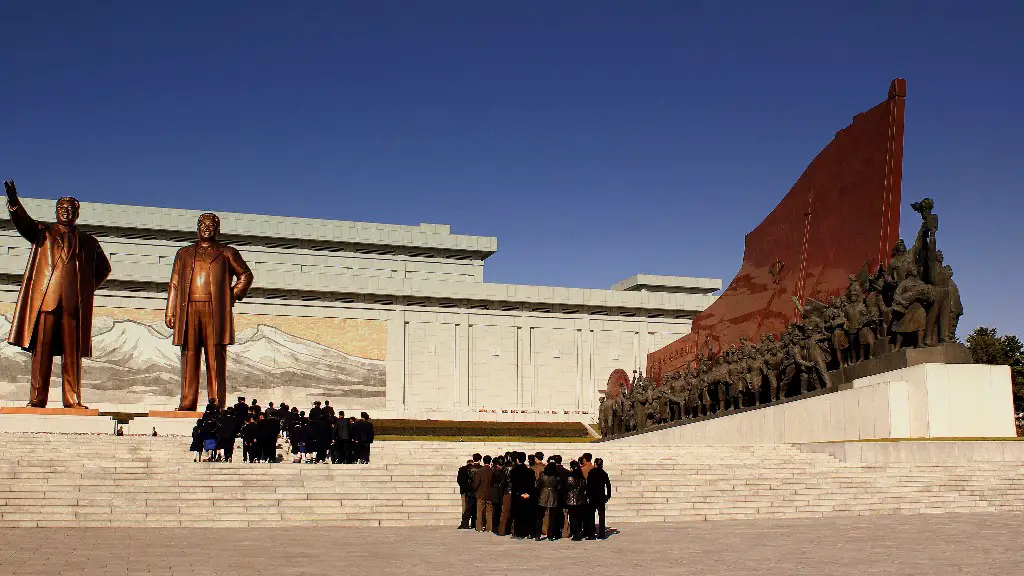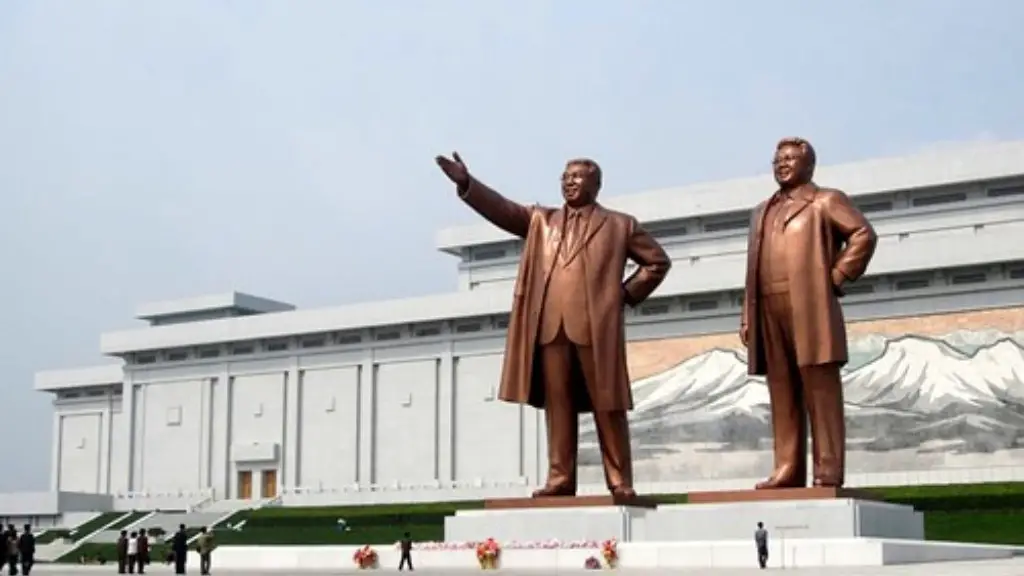Since the Korean War in 1950, tensions have been high between the United States and North Korea. The two countries have gone head to head in a battle of wills and power, and have only grown more hostile over the years. In recent times, these tensions have come to a head amid the development of North Korea’s nuclear weapons program. While the United States sees North Korea’s nuclear ambitions as a threat to global security, North Korea views them as a way to ensure their safety in the face of what they feel is an increasingly hostile United States.
The root cause of the animosity between North Korea and the United States can be traced back to the general differences between the two countries’ political beliefs. North Korea is a authoritarian one-party state while the United States is a democracy. North Korea is fiercely independent and resistant to outside interference, while the United States is an active player in global affairs and seeks to spread its influence. North Korea espouses a communist or socialist philosophy while the United States is founded upon capitalist values.
The Korean War further soured relations between the two countries, as the United States was an active participant in the conflict and fought against North Korea. Furthermore, many North Koreans view the United States’ willingness to defend South Korea as a sign of aggression and disregard for their sovereignty. This sentiment is amplified by the presence of US troops in South Korea, which North Korea sees as a direct threat to their security. On the other hand, the United States sees North Korea’s behaviour as a sign of aggression and its nuclear ambitions as an even greater threat to global stability.
Experts believe that tensions between the two countries are only going to increase in the near future, given that both sides have ramped up their military presence and rhetoric in recent months. North Korea has conducted a series of controversial test launches of ballistic missiles and has warned the US of possible pre-emptive strikes. The US, in turn, has deployed military aircraft to the region and conducted a series of military exercises with South Korea.
The fact that North Korea is a rogue state which is unable to be effectively contained by other countries and international organizations means that it is particularly difficult to resolve the conflict between North Korea and the United States amicably. This is in part due to the fact that North Korea is resistant to outside interference and isolates itself from the global community.
The strained relations between the United States and North Korea have the potential to spiral out of control and become incredibly dangerous. At the same time, their differences prevent them from reaching a peaceful resolution any time soon. As a result, it is important that both sides make an effort to de-escalate the situation through diplomatic means and work towards a future where they can peacefully coexist.
Effects on US Politics
The threats posed by North Korea have had a major impact on US politics and policies. With the possibility of a nuclear attack by North Korea always looming, the US has been forced to take a much more aggressive stance towards the country. This has been evidenced in the increased military presence in the region, the sanctions imposed on North Korea, and the hard-line rhetoric adopted by US officials.
Furthermore, the issue of North Korea has become a major talking point for US President Donald Trump, his administration and other leaders such as Secretary of State Mike Pompeo. With the 2020 Presidential election fast approaching, the issue of North Korean will likely remain an important issue in the debates leading up to it.
The US also finds itself in a difficult spot as it is constantly trying to reach a peaceful resolution to the conflict with North Korea but has to balance this with the need to maintain its regional dominance and global security.
Impact on North Korean People
The hostility between North Korea and the United States has had a significant impact on the people of North Korea. The US has imposed a series of sanctions on North Korea which, while aimed at containing their nuclear ambitions, have had the effect of severely damaging their economy and people’s livelihoods.
Furthermore, the heightened military presence in the region has had the effect of exacerbating tensions and creating an atmosphere of fear. With the constant threat of conflict and the risk of pre-emptive strikes by the United States, the people of North Korea have been living in a constant state of fear and insecurity.
The hostile relationship between the United States and North Korea has also made it difficult for North Koreans to receive the humanitarian aid that they desperately need. The US has imposed a travel ban on North Koreans which has made it difficult for aid to reach the country.
Possible Solutions
In order to de-escalate the tensions between North Korea and the US and create a more peaceful environment, experts believe that a two-pronged approach is necessary. On one hand, the US must be willing to come to the negotiating table and make meaningful concessions. This could involve decreasing the military presence in the region and offering relief from sanctions in exchange for North Korea halting their nuclear program or agreeing to a nuclear disarmament.
On the other hand, North Korea must be willing to abandon its nuclear ambitions and engage in meaningful dialogue with the US. This could involve opening up their country to the international community and allowing for more diplomatic relations with the US.
Ultimately, creating a peaceful resolution to the conflict between the US and North Korea will require both sides to be willing to make concessions and work towards a common goal of global peace. It will be a difficult process but it is ultimately the only way for both countries to move forward.
International Community Role
The tensions between the US and North Korea have not gone unnoticed by the international community. In recent times, several countries and organisations have sought to mediate between the two countries and facilitate a peaceful resolution to the conflict.
The United Nations has been particularly active in this regard, having imposed a series of resolutions on North Korea in an effort to contain its nuclear ambitions. China, one of North Korea’s closest allies has also provided diplomatic support and has been willing to take part in negotiations. South Korea, which is an ally of the United States, has also sought to de-escalate the situation and work towards a peaceful resolution.
The international community has an important role to play in bringing about a peaceful resolution to the conflict between the United States and North Korea. The challenge lies in finding a way to bridge the gaps between the two countries and convince them to come to the negotiating table.
Implications of Tensions
The strained relations between the United States and North Korea have serious global implications. Any military conflict between the two countries would have the potential to cause catastrophic damage and the use of nuclear weapons could put the entire world at risk.
Furthermore, the presence of US forces in the region has been a major source of tension between North Korea and its neighbours, particularly China, which it sees as an encroachment on its sovereignty. Their hostile relationship has had an effect on global politics and could potentially lead to further conflicts in the future.
Finally, the hostility between the United States and North Korea has also had a major effect on the global economy. UN sanctions and the US’s hard-line policies towards North Korea have had a chilling effect on the economies of both countries as well as their respective allies. This has had a rippling effect throughout the world and has adversely affected global trade and other economic activities.





